
Embrace a strategic approach to resilience to thrive in the era of constant disruption
As businesses face a rapidly changing world, the challenges of geopolitical upheaval, soaring inflation and economic uncertainties have become ever more prevalent. Moreover, the disruptions from cybercrime, supply chain challenges and climate crises have emerged as daunting and unpredictable challenges.
In such an environment, business leaders need to anticipate and respond to disruption proactively – not only to survive, but to thrive.
The key to success is resilience: the ability to navigate through crises, and the capacity to adapt and succeed in the face of constant disruption. PwC’s Global Crisis and Resilience Survey 2023 delves into how organisations are directing their resources, efforts, and investments toward building resilience to thrive in a state of permacrisis.
The resounding voice of global business leaders echoes the need for a resilience revolution. It is time for organisations to embrace and invest in resilience to transform the way they operate in the era of constant disruption.

The data: Overview
The data from our global respondents demonstrates confidence and positivity. Business leaders have recognised true resilience as a core competitive advantage. 89% told us that resilience is one of their most important strategic organisational priorities. 70% of respondents said they are confident in their organisations' ability to respond to various disruptions. However, we found that too many organisations are lacking the foundational elements of resilience they need to be successful.
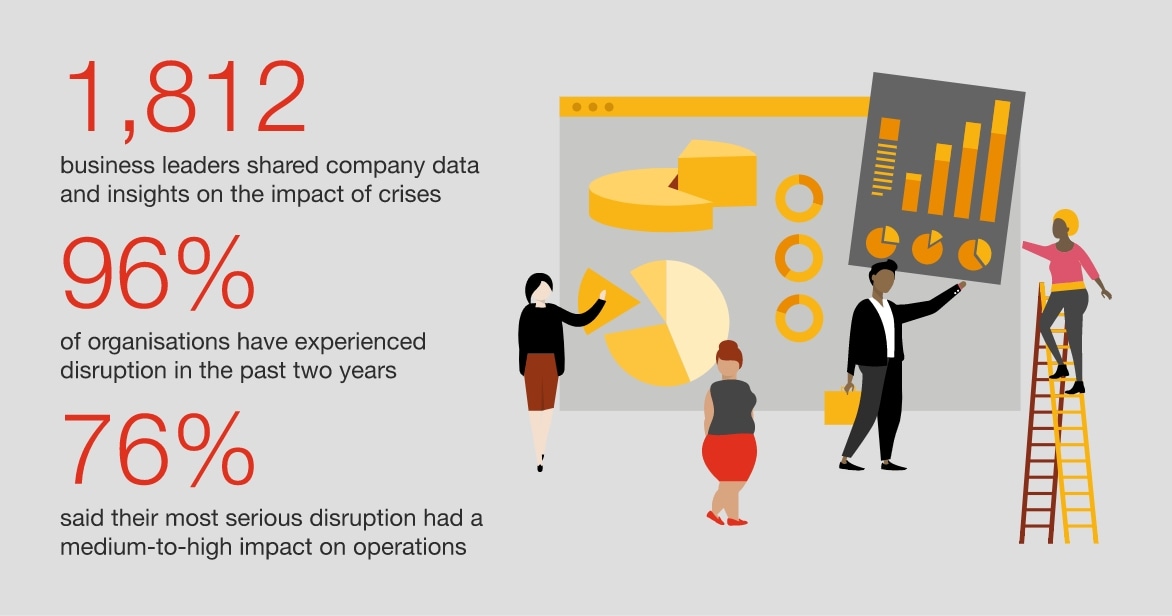

Three takeaways
Integration: An integrated resilience programme is essential
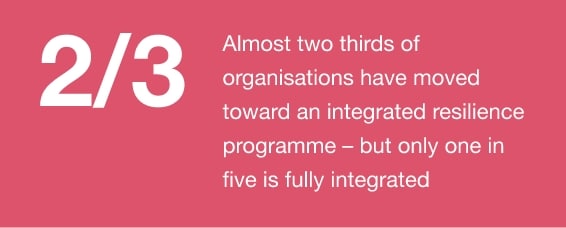
It is no longer sufficient for organisations to be in silos as they address today’s complex and interconnected risks. Enterprises are actively moving to an integrated approach to resilience, centrally governing and aligning multiple resilience capabilities around what matters most to the business, and embedding the programme into operations and the corporate culture.
Leadership: Thriving in permacrisis requires an executive leader and upskilled teams
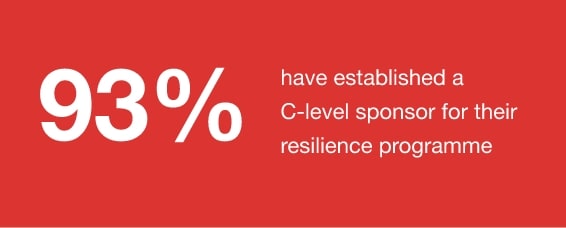
A successful resilience strategy and programme needs:
- Executive sponsorship from the C-suite
- A senior leader with clear responsibility for the programme
- A skilled team to drive the programme across the organisation
31% of our respondents said building a team with the right skills is a major challenge in establishing a resilience programme. 57% of organisations cite upskilling future leaders as one of their three most important elements of future-proofing resilience.
Programme approach: Building operational resilience around what matters most
Organisations must build operational resilience and ensure that enterprise planning and preparation are part of a broader continuous cycle. As more organisations integrate their resilience programmes, many are adopting the core principles of an operational resilience (OpRes) approach, focusing on protecting what matters most and prioritising investment based on what’s critical to their organisation and stakeholders. This allows organisations to manage risks with high reliability and to drive efficiency.
Those who have moved to an integrated resilience programme are significantly further ahead in many of the core elements of OpRes: building a robust corporate immune system where an organisation can adapt, flex, and move forward stronger.
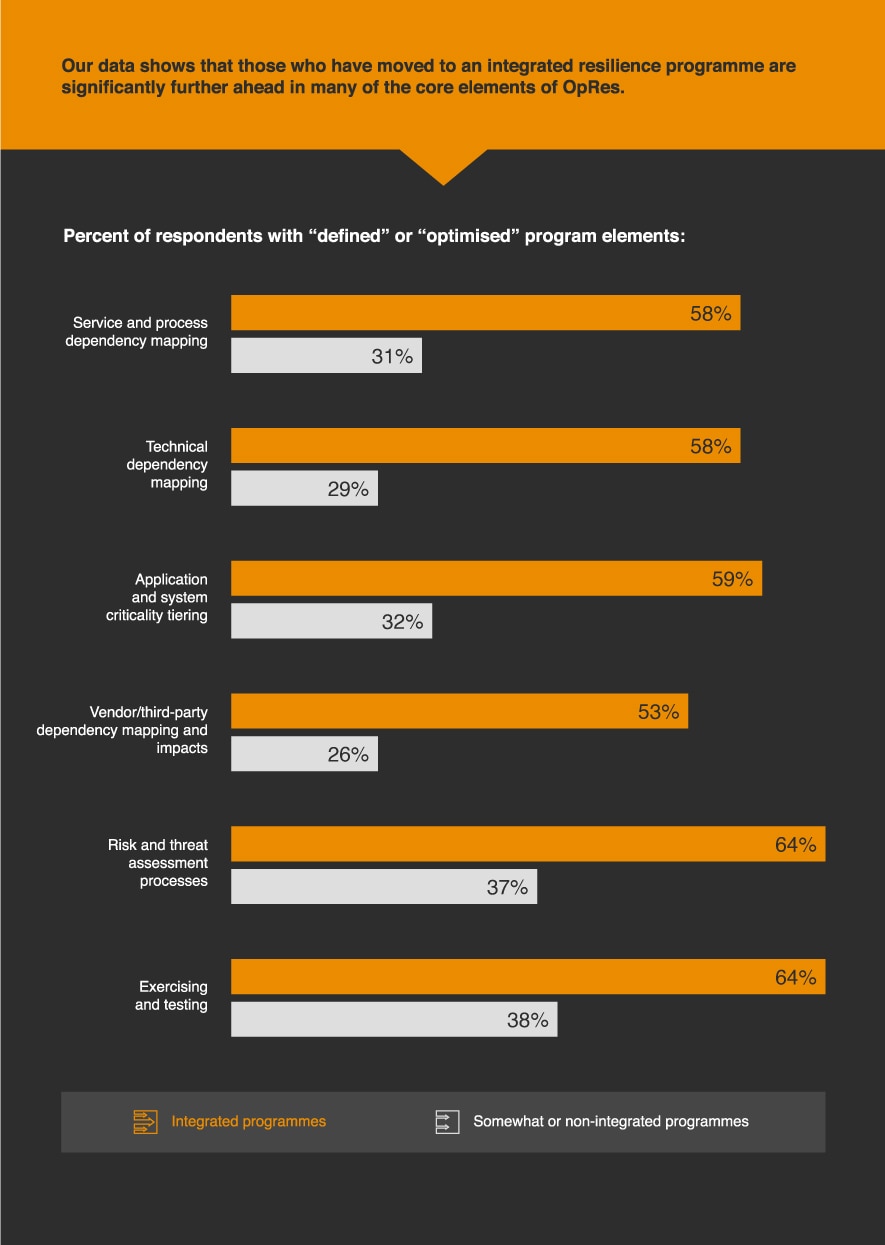

Technology-powered resilience
Distributed data, systems, processes, and operational silos mean organisations struggle to obtain a view of their resilience, only identifying gaps when disruption hits. The traditional approach to managing resilience is no longer succeeding; simply checking off compliance with regulations does not deliver resilience. Too many organisations are missing out on opportunities to identify and rectify vulnerabilities before an incident occurs. What are the vulnerabilities you can and can’t live with? It’s time for a new approach.
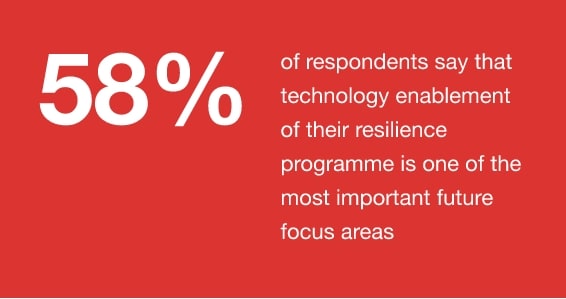
Business leaders understand the need for resilience strategies to be underpinned by technology that can intelligently aggregate data from across a business to provide an integrated, insight-driven single pane of glass, as well as greater agility in times of crisis. Business leaders are also looking to use technology to create a living resilience programme they can continually test and evolve.

Where are businesses investing?
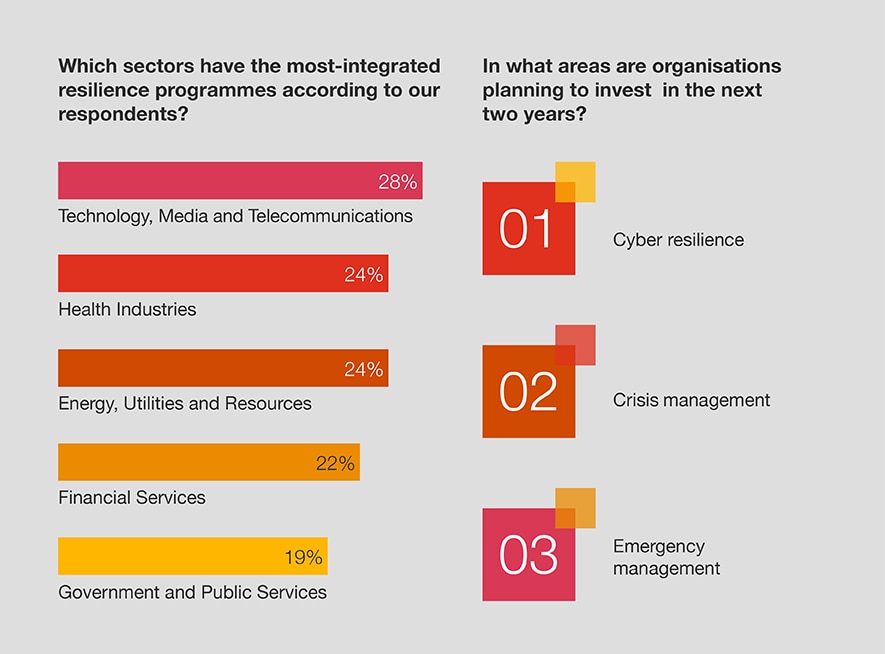
Despite market conditions, organisations aren’t reducing their investment in resilience – further testament to business leaders’ recognition that it is critically important.
Businesses making the greatest overall investment in resilience are characterised by a few key traits that deliver results over the long term. For starters, they consider investment a strategic move, rather than a tactic motivated by compliance needs or fear.
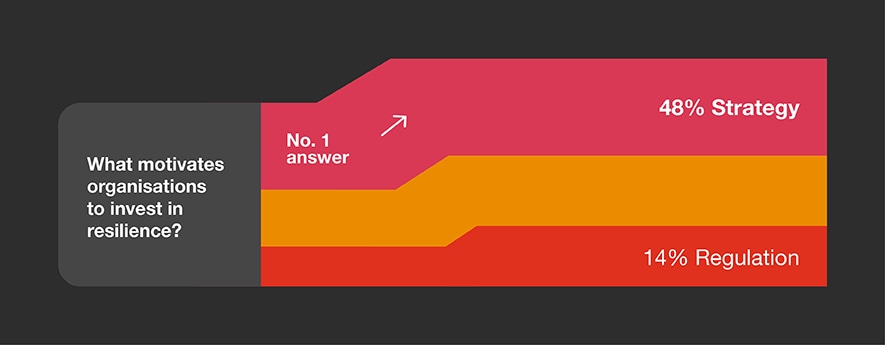
Case study: Organisational maturity
An integrated resilience programme makes all of the difference when disruption strikes.
Here's what can happen:
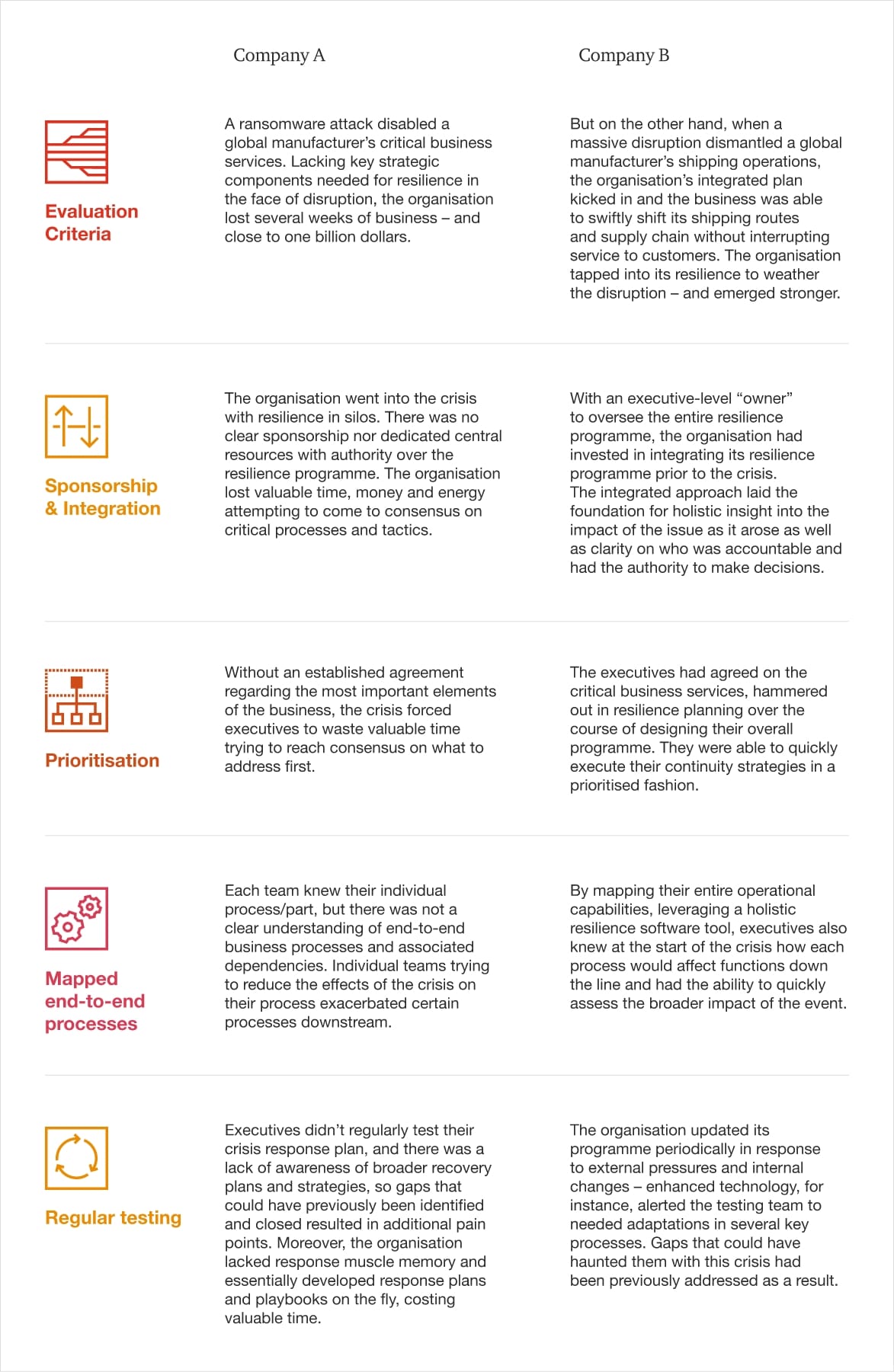

Join the resilience revolution: How to thrive in permacrisis
Establish executive sponsorship for your resilience programme
Identify a visible senior leader responsible and accountable for the programme
Identify and map your critical business services
Identify your critical business services, map their dependencies, and integrate your resilience capabilities around those services
Build an integrated enterprise resilience programme of cross-functional teams
Align your programme with your strategy, values, and investment priorities across the organisation
Establish a panoramic view of your unique risk landscape
Go beyond traditional risk management and leverage technology to highlight weak signals and other key indicators for resilience; organisations most able to mitigate, withstand and recover stronger from a crisis all have a panoramic view of their risk landscape, allowing them to better anticipate risk and act with confidence
Fortify your resilience strategy with technology and regular testing and exercises
Underpin strategies with technology and mine actionable intelligence from data to help you anticipate, prevent, prepare for, simulate and learn from risks and disruption; assess your capabilities regularly for relevance, alignment and preparation
Select a country or region from the list to explore local insights
The arrival of a resilience revolution Between September and November 2022, organisations representing 42 countries across all industries shared their observations. PwC’s Global Crisis and Resilience Survey 2023 is our third study analysing corporate crisis and resilience data.
















